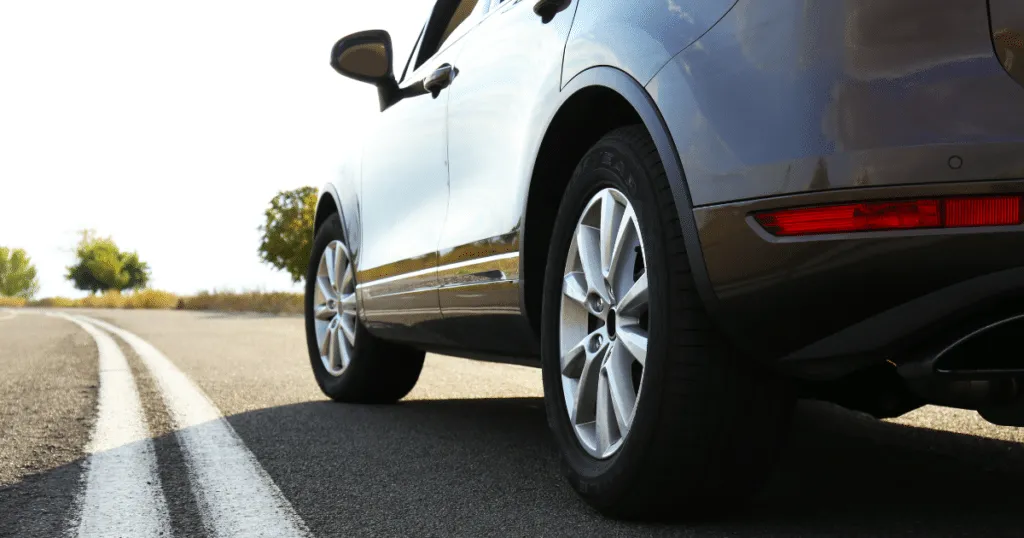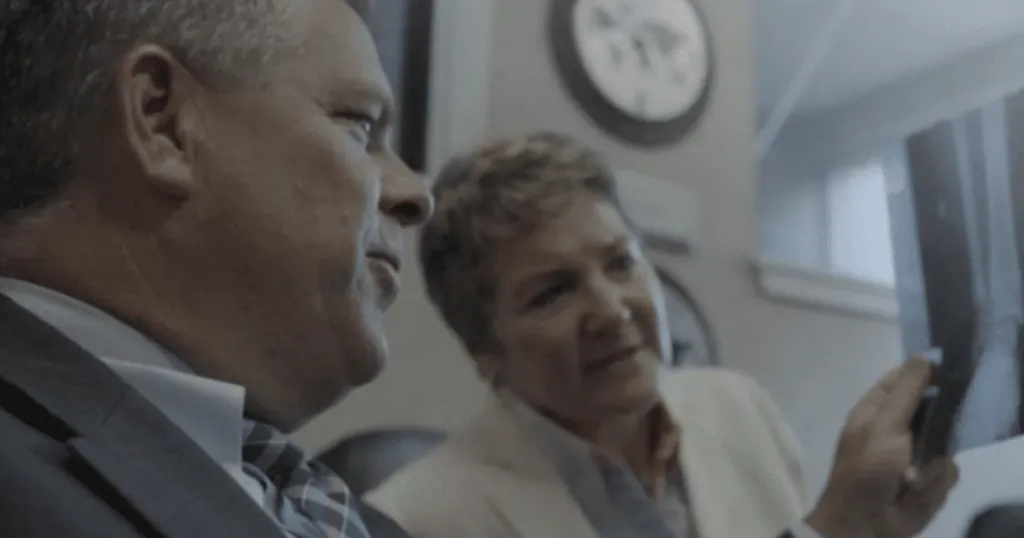Imagine being involved in a car accident only to discover that the damages far exceed the available insurance coverage. For Rhode Island drivers, this situation is more common than you might think, potentially leaving both the injured party and the at-fault driver facing significant financial challenges.
When a car accident claim exceeds the available insurance policy limits, the injured party may struggle to receive full compensation for their losses, including medical bills, vehicle repairs, and lost wages. Meanwhile, at-fault drivers risk personal liability, which could jeopardize their savings and assets.
Understanding what happens when a car accident claim exceeds insurance limits is essential for protecting your financial future. Whether you’re concerned about covering damages or avoiding liability, knowing your rights, legal options, and coverage gaps is key. Let’s explore what this means for Rhode Island drivers and how you can navigate this tricky scenario with confidence.
What Are Insurance Policy Limits In Rhode Island?
“Insurance limits” refer to the maximum amount your insurance provider will pay for damages or injuries in an accident. In Rhode Island, all drivers must carry liability and property damage insurance to cover costs if they are involved in an accident. However, these mandatory minimums may not be enough to fully protect you after a serious collision.
How Liability And Property Damage Coverage Work
Liability coverage pays for damages or injuries caused to others. For example, if you cause an accident and the other driver incurs medical expenses, your policy covers those costs up to your policy’s limits. Property damage coverage, on the other hand, covers repairs or replacement of the other party’s vehicle or property.
Rhode Island’s Minimum Insurance Coverage Requirements
Rhode Island law requires drivers to carry the following minimum coverage:
- Bodily Injury Liability: $25,000 per person and $50,000 per accident.
- Property Damage Liability: $25,000 per accident.
- Uninsured/Underinsured Motorist Coverage: $25,000 per person and $50,000 per accident.
This means that if you are at fault in a car accident, your insurance company will pay up to these limits for the party’s damages, like medical bills and property repairs.
Understanding these limits is crucial for Rhode Island drivers, as the state’s minimum requirements often fall short in severe accidents. Increasing your liability coverage or purchasing additional coverage can provide the peace of mind needed to handle unexpected situations.
What Happens If My Claim Exceeds My Car Insurance Coverage?
When damages from a car accident exceed your policy limits, the financial and legal consequences can be significant. Your insurance policy will pay out up to the maximum limits for which you are covered. However, if the costs exceed your insurance limits, you may be held personally responsible for the remaining balance.
Paying Out Of Pocket
If your insurance doesn’t fully cover the damages, the injured party may pursue you for the difference. This could include costs for medical bills, vehicle repairs, lost wages, and even non-economic damages like pain and suffering. For instance, if an accident results in $100,000 in damages but your liability limit is $50,000, you’ll be responsible for the remaining $50,000.
Risk To Personal Assets
When insurance falls short, the legal action to recover the gap could place your personal assets—like savings, property, or wages—at risk. In extreme cases, courts may allow wage garnishment or force the sale of the at-fault driver’s assets to satisfy the judgment.
Long-Term Financial Impact
The financial strain from this gap in coverage could take years to recover from. Beyond immediate costs, your credit score and financial stability could also be affected.
Can I Still Get Compensation If My Car Accident Claim Exceeds Insurance Limits?
Even when damages exceed the at-fault driver’s insurance limits, you may still have options to recover the full amount. Rhode Island law provides legal alternatives for car accident victims to seek additional compensation, including personal injury lawsuits and underinsured motorist (UIM) coverage.
Personal Injury Lawsuits
If the other driver’s insurance doesn’t fully cover your losses, you can file a lawsuit to pursue the remaining amount. This process involves holding the at-fault driver directly responsible for your damages, including medical expenses, lost wages, property repairs, and pain and suffering. However, successfully recovering compensation depends on the at-fault party’s ability to pay. If they lack significant assets, collecting the full amount may be challenging.
Underinsured Motorist (UIM) Coverage
UIM coverage is an essential safety net for Rhode Island drivers. If the at-fault driver’s insurance is insufficient, your UIM policy can step in to cover the gap up to your own policy limits. For instance, if your claim totals $75,000 but the at-fault driver’s policy covers only $50,000, your UIM coverage can help recover the additional $25,000.
Without UIM coverage, you might be left with unpaid bills and financial hardship after a severe accident. Adding this coverage to your policy ensures that you have a backup plan when another driver’s insurance falls short. This proactive measure can make a significant difference in securing the compensation you deserve.
Can The At-Fault Driver Be Held Personally Liable?
When an at-fault driver’s insurance coverage is insufficient to cover the full damages from a car accident, they may be held personally liable for the remaining amount. This liability can extend beyond their insurance policy, exposing their assets to significant risk.
How Personal Liability Works
If the damages from an accident exceed the at-fault driver’s insurance limits, the injured party has the legal right to pursue the driver for the unpaid balance. This typically occurs when the injured party initiates a personal injury lawsuit. For example, if the total damages amount to $100,000 and the at-fault driver’s insurance covers only $50,000, the injured party can seek the remaining $50,000 directly from the driver.
Assets At Risk
When held personally liable, the at-fault driver’s assets may be used to satisfy the judgment. This could include savings accounts, real estate, vehicles, or other valuable property. In some cases, courts may order wage garnishment to recover unpaid damages. For drivers with significant assets, a claim exceeding policy limits can lead to severe financial hardship.
How Can I Protect Myself From Auto Accident Claims Exceeding Policy Limits?
Protecting yourself from financial risks when an accident claim exceeds your insurance limits starts with ensuring you have adequate coverage. By taking proactive steps, Rhode Island drivers can safeguard their assets and avoid significant financial hardship in the event of a serious accident.
Increase Your Liability Limits
The state-required minimum insurance coverage in Rhode Island may not be enough to cover all damages in a severe accident. Increasing your liability limits provides additional protection. For example, opting for coverage of $100,000 per person and $300,000 per accident can better protect you against large claims.
Consider Umbrella Insurance
An umbrella policy offers an extra layer of protection by covering claims that exceed the limits of your primary auto insurance policy. For a relatively low cost, this type of coverage can provide millions of dollars in additional liability protection, safeguarding your savings, property, and future earnings.
Review And Update Your Car Insurance Policy Regularly
Regularly reviewing your insurance policy ensures it aligns with your current financial situation and risk tolerance. As life circumstances change—such as purchasing a home or increasing your income—updating your coverage is essential to maintaining adequate protection.
Having higher coverage limits and supplemental policies like umbrella insurance can shield you from lawsuits, wage garnishments, and other financial risks. It’s a small investment that provides peace of mind, ensuring that a single accident won’t derail your financial stability.
How Can An Experienced Rhode Island Car Accident Lawyer Help When Claims Exceed Insurance Limits?
When a car accident claim exceeds insurance limits, navigating the complexities of compensation can feel overwhelming. An experienced Rhode Island car accident lawyer can provide invaluable assistance, ensuring you explore all available options and secure the compensation you deserve.
With professional legal support, you can focus on recovery while your lawyer handles the complexities of your car accident case, including:
Pursuing Additional Compensation
If the at-fault driver’s insurance doesn’t cover your losses, a car accident attorney can help you file a personal injury lawsuit to recover the remaining amount. They’ll assess the value of your claim, gather evidence, and represent your interests in court. This approach can be crucial when dealing with substantial medical bills, lost wages, or long-term damages.
Navigating Underinsured Motorist Claims
If you have UIM coverage, your lawyer can guide you through the claims process to recover compensation from your own policy. They’ll negotiate with your insurance company to ensure you receive the maximum payout allowed under your policy limits.
Handling Legal Complexities
From filing paperwork to negotiating settlements, a personal injury lawyer helps you avoid common pitfalls and ensures all legal requirements are met. If the case proceeds to court, they’ll advocate on your behalf, presenting a strong case to secure the best outcome.
Protecting Your Financial Future
An experienced Rhode Island attorney understands state-specific laws and procedures, giving you an advantage in handling your case effectively. Their expertise ensures that no opportunity for compensation is overlooked, protecting you from financial hardship when insurance limits fall short.
What Rhode Island Laws Should I Know About Insurance Claims?
Understanding Rhode Island’s unique laws regarding car insurance and liability can help you protect your rights after an accident. These regulations dictate how insurance claims are handled and what compensation you may be entitled to receive.
Apart from the mandatory insurance limits discussed above, here are Rhode Island laws you should know when navigating the insurance claims process after a car accident:
Rhode Island’s At-Fault Insurance System
Rhode Island operates as an at-fault state for car insurance claims. This means the driver responsible for causing the accident is liable for covering damages, including medical expenses, lost wages, and property damage. Victims can seek compensation directly from the at-fault driver’s insurance, file a personal injury lawsuit, or utilize their own insurance coverage if necessary.
Comparative Negligence
Rhode Island is a comparative negligence state, and you can still recover damages if you were partially at fault for the accident. However, your compensation will be reduced by your percentage of fault. For example, if you are 20% at fault, you can still recover 80% of your damages.
Personal Injury Protection (PIP)
Rhode Island does not require Personal Injury Protection (PIP) coverage, unlike some states. Instead, liability coverage is used to compensate injured parties. This means that after an accident, the at-fault driver’s insurance is responsible for paying medical bills and other damages up to the policy limits.
Statute Of Limitations
In Rhode Island, you typically have three years from the date of the accident to file a personal injury claim. Missing this deadline may forfeit your right to seek compensation.
Familiarity with these laws ensures you’re prepared to navigate the claims process and secure fair compensation.
Contact Marasco & Nesselbush Law Firm For Help With Your Car Accident Claim
If your car accident claim exceeds insurance limits, navigating the financial and legal challenges can be overwhelming. Understanding Rhode Island’s insurance and liability laws is crucial, but having professional guidance can make all the difference.
At Marasco & Nesselbush, we understand the complexities of claims that surpass policy limits. Our experienced team is here to help you explore your options, whether it’s pursuing additional compensation, navigating underinsured motorist claims, or protecting your financial future.
Don’t face this situation alone—let us guide you every step of the way. Contact us today for a free consultation to discuss your case and discover how we can help you secure the compensation you deserve. Your peace of mind is just a call away.
FAQs
What if my auto insurance policy doesn’t cover the full damage in an accident in Rhode Island?
If your insurance doesn’t cover all damages, you may need to pay out of pocket for the remaining balance. Additionally, the injured party may explore options like UIM coverage or legal action to recover costs.
Can I sue the other driver if their insurance doesn’t cover all the costs in Rhode Island?
Yes, you can file a personal injury lawsuit against the at-fault driver to recover the remaining damages. However, collecting compensation depends on their ability to pay, such as available assets or income.
How can I avoid being underinsured in Rhode Island?
To avoid being underinsured, consider increasing your liability coverage limits and adding umbrella insurance. Regularly review your policy to ensure it aligns with your financial needs and offers adequate protection.
What should I do if the at-fault driver has no insurance or not enough insurance in Rhode Island?
If the at-fault driver lacks sufficient insurance, file a claim under your underinsured or uninsured motorist (UIM/UM) coverage. Consulting a lawyer can also help you explore other compensation options, like filing a personal injury lawsuit.
Do you have a case?
If you think you may have a case,
contact us now for a FREE consultation
"(Required)" indicates required fields


